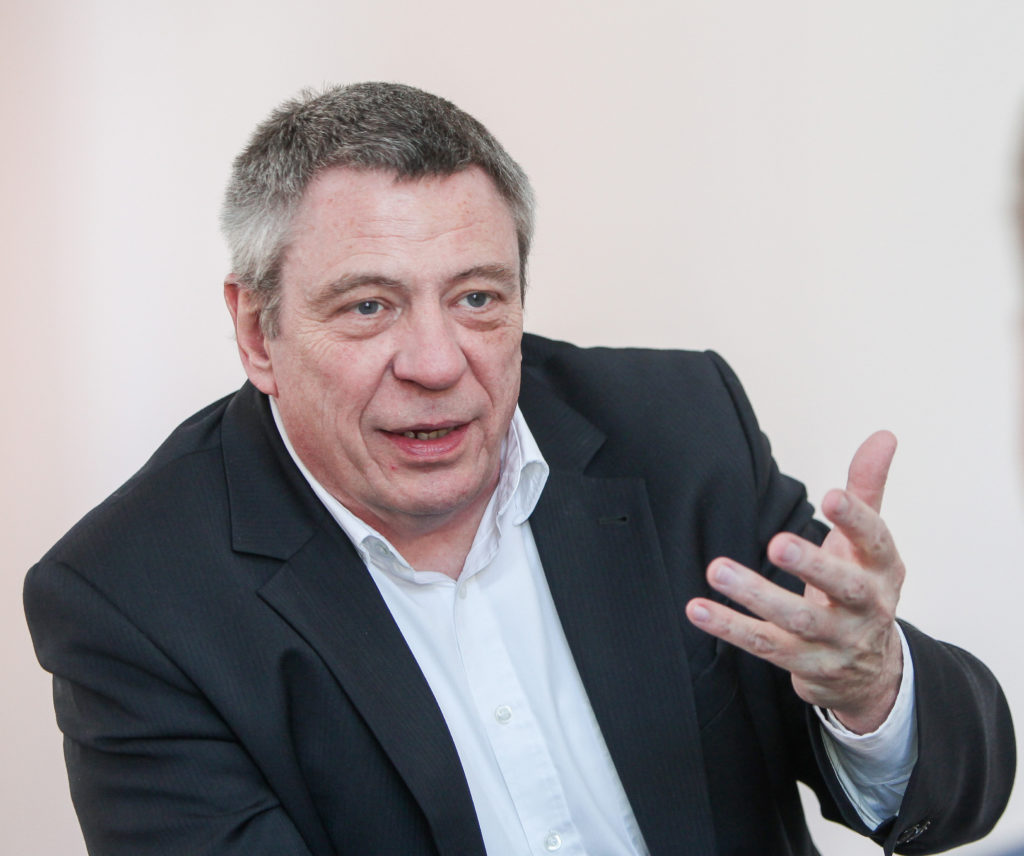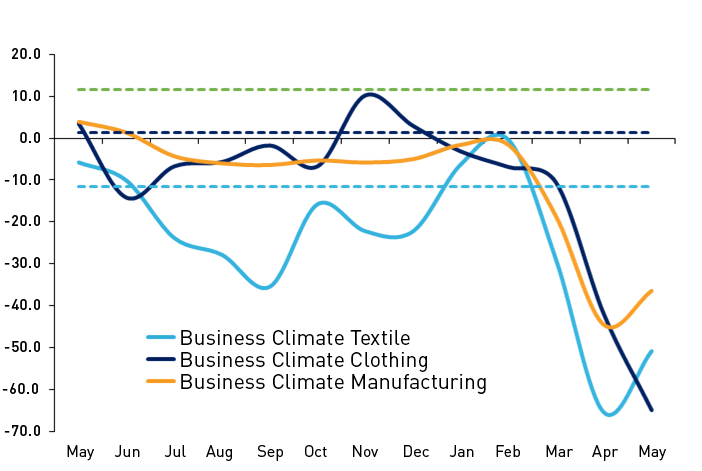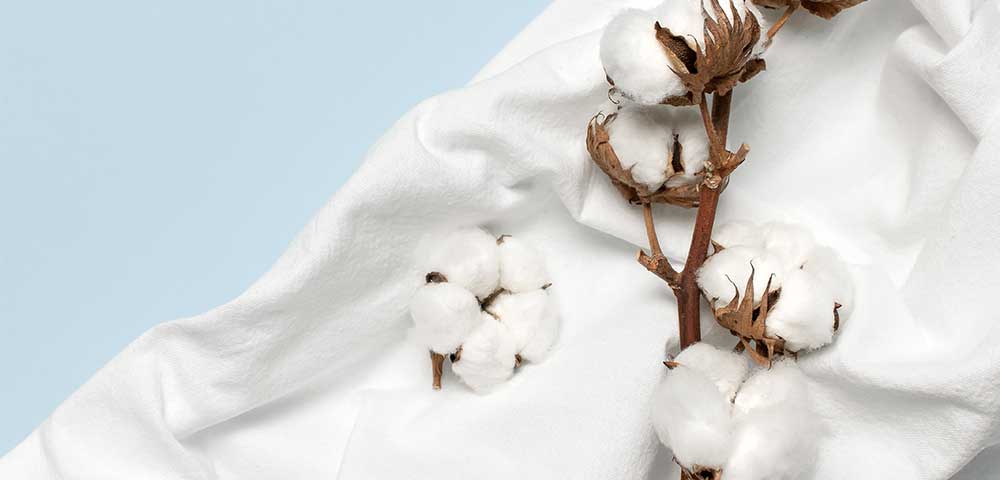Interview with Dr Uwe Mazura, Managing Director of the Confederation of the German Textile and Fashion Industry (textil + mode).

The corona crisis is presenting a large part of the German economy with unknown and extreme challenges. The textile and fashion industry is suffering from interrupted supply chains on the one hand and from closed shops and poor consumer confidence on the other. The Cotton Report editorial team spoke to Dr Uwe Mazura, Managing Director of the Confederation of the German Textile and Fashion Industry (textil + mode), about the current situation and possible solutions.
Dr Mazura, what are the biggest problems currently facing companies in the textile and fashion industry?
It is without a doubt the worst crisis in our industry in the post-war period. Worldwide, the fashion and clothing market has almost collapsed. Shops in many countries around the world were closed for weeks, sometimes months, and the online fashion business has also collapsed. The mood among consumers is at rock bottom. Now, a discount battle awaits us, which is a nightmare for our high-value German clothing brands. But the crisis is not just affecting clothing companies. It runs right through our industry: car suppliers, mattress manufacturers, hotel laundry manufacturers, the order books are empty everywhere and many companies do not know how they will survive the coming months. More than 80 percent of our companies have registered for short-time working benefits and it is affecting the very substance of many of our medium-sized companies, who fear that they will not survive the summer.
Are there also any rays of hope or positive developments to report?
One ray of hope in the corona crisis was, and still is, that we at least have some of our own manufacturers and companies for medical supplies in Germany when it comes to medical protective equipment and nonwovens. It was possible to organise emergency supplies very quickly after China became the first country to be affected by corona and was no longer able to meet global demand. Around half of our clothing industry has now started manufacturing protective masks; however, this should not disguise the fact that the drop in sales cannot be made up for in any way. On the contrary: these companies have had to invest and set up new supply chains for mask production. The core business of our medium-sized manufacturers is high-quality and highly specialized textiles.
What long-term effects do you think corona will have on the global supply chains of the textile and clothing industry and what consequences might this have for Germany as a location?
It is too early to make a reliable forecast here. The desire to produce more in Europe again, for example to reduce our dependency on China for medical protective equipment, depends on whether as a high-wage country with record energy prices we can produce disposable medical products at all competitively. Anyone calling loudly for production to be relocated here must also say how this should pay off for our companies. But for the time being, it is a question of our companies in Germany surviving the crisis at all.
What can help?

We have proposed a very tangible restart plan to the federal government. In addition to various proposals to boost consumption again – for example through a reduction in sales tax and consumer vouchers – all laws must now be put on hold that additionally burden our medium-sized companies. This includes a lot of nonsensical additional regulations for special textiles and further pressure from energy costs. Reducing bureaucracy is also something that does not cost the state anything extra but takes unnecessary pressure off companies.
The German fashion and clothing industry was well on the way to digitalisation. Do you think the pandemic will accelerate or slow down this development?
If companies still have money to invest, many developments in this area will accelerate. Seen in this way, we were right to advance the digitalisation of our medium-sized companies before corona with our “Textiles Networked” project. We can now build on this and intensify our offers.
Before the crisis, the subject of sustainability was receiving increased attention in the German fashion industry.
Textil+mode is also an active member of the Partnership for Sustainable Textiles. How do you evaluate the development of this subject so far and what significance is it likely to have during and after the crisis?
I am anxious about this development myself. I am concerned that our valuable German textile companies of all people will not survive this profound economic crisis. But it is precisely these companies who pay the taxes with which our politicians pay for initiatives such as the textile partnership. In any case, I will no longer accept that the same politicians who continue to attack us for our supply chains are now denouncing the fact that people in India and Bangladesh are unemployed. I would ask for more objectivity and honesty in this debate.
The German textile location stands for research and innovation and is the global market leader in many niches. Do you have a current example of a remarkable research result or its application?
There are many of these. In mid-March, our research board presented an impressive research study “Perspectives 2035”. I can only recommend that you take a look at the study, which we have also put online. Textile is the material of the future in so many innovative areas. This begins with antibacterial substances, goes through textile facades that convert exhaust gases back into clean air and extends to completely new fibres that reduce a textile’s CO² footprint to virtually zero. Our future study is a blueprint for a green deal textile and shows how highly innovative the medium-sized industry in Germany is. Concentrating on such innovations is a hundred times more effective than the constant call for new CO² reduction targets.
Thank you for the Interview!
Interviews embody the opinion of the respective interview partner and do not represent the position of the Bremen Cotton Exchange as neutral, independent institution.

